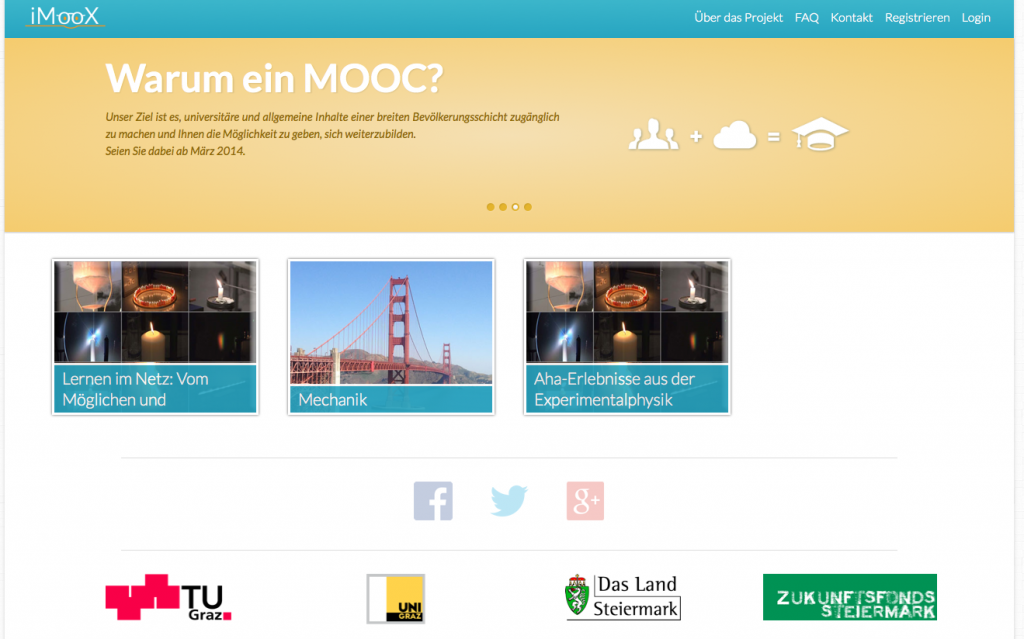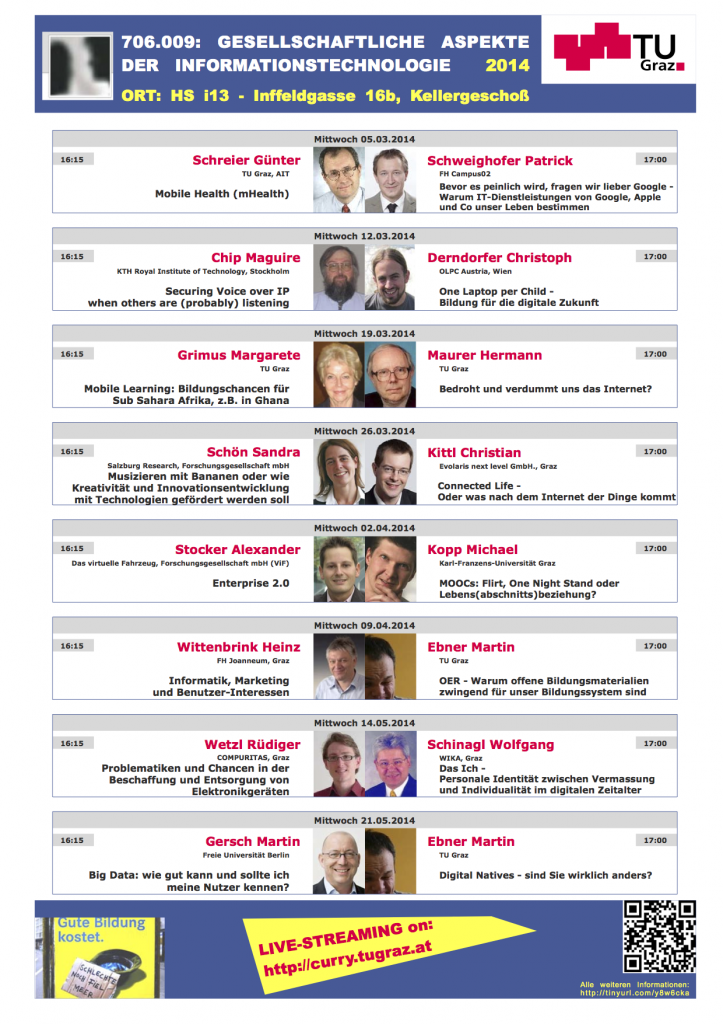Ich darf heute an der Universität Graz einen Workshop zu Open Educational Resources, kurz OER, für Interessierte geben. Initiiert wird das von der ansässisgen Hochschülerschaft die die Zeichen der Zeit erkannt hat und sich sehr stark dem Thema Open Science widmet, welches natürlich große Berührungspunkte mit OER hat.
Ablauf des Workshops (Dauer 3h inkl. Pause):
- Input – Generelles zu OER:
- Was sind offene Bildungsressourcen (OER)?
- Welche Lizensierungsmöglichkeiten (Creative Commons) gibt es? (OER Remix Game)
- Wie und wo finde ich OER? (OER Wiki Apps)
- Wie erstelle ich OER und wie setze ich es an der Hochschule ein?
- Wer finanziert das?
- Gruppenarbeitsphase:
- Brainstorming: Wo würden Sie OER brauchen bzw. wo sind Ihre Berührungspunkte im Alltag als Lernender oder Lehrender?
- Formulieren Sie ein These die in den nächsten 5 Jahren eintreten könnte – z.B „eine Fakultät der Universität setzt ausschließlich OER-Materialien ein“
- ThinkTank-Methode: Beschreiben Sie was sich verändert hat als diese Vision eingetreten ist, bzw. wie verschiedene Stakeholder darauf reagieren?
- Roadmapping-Methode: „Blick zurück“, wie kam es dazu, dass sich diese Vision erfüllte? Wer oder was waren die Ermöglicher? Was waren die Hindernisse?
- Präsentation der Ergebnisse aller Gruppen
Hier gibt es noch den zughörigen Foliensatz:
Klicken Sie auf den unteren Button, um den Inhalt von www.slideshare.net zu laden.


